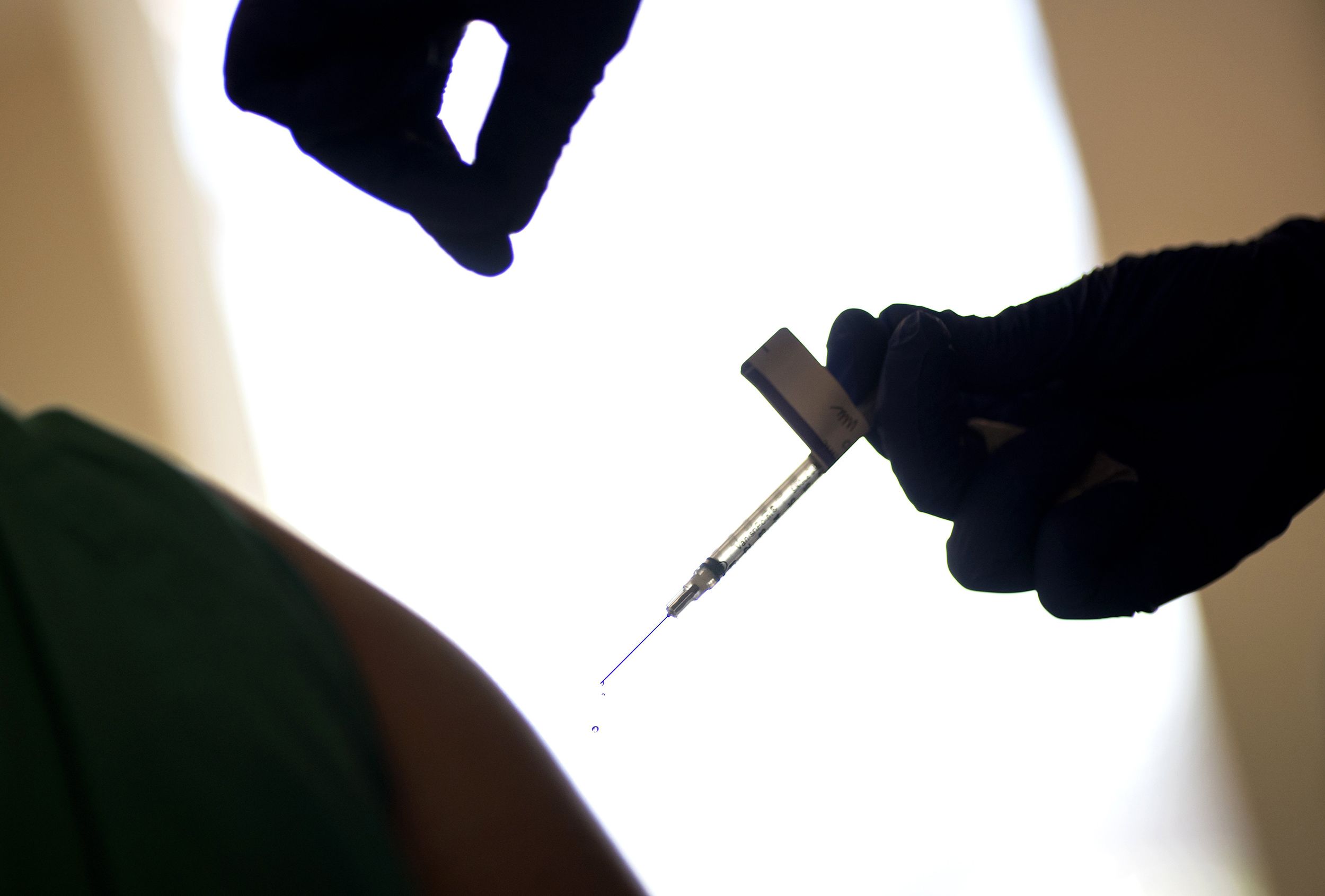Data shows how rare severe breakthrough Covid infections are
Covid case figures from two dozen states show that the vaccines offer strong protection against severe illness and death.

By Nigel Chiwaya, Elliott Ramos, Pedro Barquinha and Jiachuan Wu
August 6, 2021
Concern about breakthrough Covid cases may be increasing, but data from two dozen states suggests that during the first half of this year, a fully vaccinated person had a higher probability of getting accidentally electrocuted than of developing severe coronavirus symptoms.
The data, collected by the Kaiser Family Foundation from 24 states that report breakthrough case data, including Arizona, California and New Jersey, in addition to the District of Columbia, shows stark differences in the rates of infections, hospitalizations and deaths for vaccinated and unvaccinated individuals.
Vaccinated people
Unvaccinated people
Each dot represents approximately N people
Overall, the data showed that approximately 1 in 900 vaccinated people had breakthrough infections, odds that would be comparable to dying in a motorcycle crash, according to data from the National Safety Council. The vast majority of those had mild or no symptoms of Covid. About 1 in 17,000 needed to be hospitalized, odds that are less likely than dying of electrocution.
Approximately 1 in 83,000 vaccinated people died from Covid, which was even less likely than dying from hornet, wasp or bee stings.
These findings echo the experiences of health care experts, who are urging the public to get vaccinated in the face of the highly contagious delta variant.
"In general, it's very, very rare to get Covid after being vaccinated,” said Dr. Eric Ascher, a family medicine physician at Lenox Hill Hospital in New York City. “If someone does have that experience, it's going to be a very mild case, if the person even has symptoms at all."
The data mirrors claims from Dr. Rochelle Walensky, director of the Centers for Disease Control and Prevention, that the latest surge is a “pandemic of the unvaccinated.”
An NBC News analysis of the figures found significantly higher rates of severe illness and death among unvaccinated populations. Examples include:
- In California, infected unvaccinated people were 142 times as likely to need hospitalization as infected vaccinated people.
- In New Jersey, unvaccinated people were 1,058 times as likely to need hospitalization.
- In Washington state, the sickest patients were 62 times as likely to die if they were unvaccinated.
The three Covid vaccines available in the U.S., from Moderna, Pfizer Inc and BioNTech SE, and Johnson & Johnson, have proven very effective at preventing severe Covid infections thus far. Moderna reported Thursday that its vaccine was 93 percent effective six months after its second dose, while Pfizer’s vaccine was 84 percent effective after six months, both far higher than the 45 percent effectiveness of last season’s slate of flu vaccines.
Health experts say the occurrence of breakthrough infections is to be expected, as no vaccine is 100 percent effective. But they all stress that the reason to get the shots is to avoid ending up in the hospital.
“The most important outcomes are not preventing all infections, but preventing serious infections and deaths,” said Dr. Paul Biddinger, director of the emergency preparedness research evaluation and practice program at the Harvard T.H. Chan School of Public Health.
Dr. Brad Spellberg, chief medical officer at the Los Angeles County-University of Southern California Medical Center, said that few of the breakthrough cases at the university have led to serious illness.
“We do occasionally see breakthrough infections. Ninety-five percent of those are mild and do not require hospitalization,” he said. “They come into urgent care, they may come into the ER with a cough and sniffles. But they're not requiring oxygen and they go home. A very, very, very small percentage required oxygen in the inpatient side.”
Ascher, who sees about 100 patients a week, said that since vaccines became widely available in the spring, he has come across only one fully vaccinated patient who tested positive for Covid. The patient had mild symptoms, including fatigue and loss of smell, that lasted fewer than two days.
He said he tries to stress to patients that the vaccines offer real protection, and that he tells them: “If you do get fully vaccinated and you do come down with Covid, it's going to be mild. You're not going to be hospitalized and you're not going to die. It's very rare that a fully vaccinated person would have a poor outcome.”
A Covid outbreak in Provincetown, Massachusetts, over the Fourth of July holiday weekend raised concerns among health officials about breakthrough infections. NBC Boston reported that the outbreak resulted in more than 900 cases.
Massachusetts is a leader in vaccinations, with more than 64 percent of its population fully vaccinated, and a CDC study found that while about 3 out of 4 of those who were infected in the cluster were vaccinated, there were few hospitalizations and no deaths.
The situation is very different for unvaccinated people. Covid cases have risen across the country since June, but the biggest increases have been in states with low vaccination rates.
Dr. Michelle Prickett, a pulmonary and critical care specialist at Northwestern Medicine in Illinois, said that while the university has seen breakthrough cases among immunocompromised patients, “our new infections coming in have primarily been unvaccinated.”
In July, the CDC recommended that vaccinated people in areas of high viral transmission wear masks while indoors. As of Friday, that includes more than 80 percent of U.S. counties.
Graphics data sources:
Breakthrough data is from Kaiser Family Foundation. Breakthrough hospitalization data was unavailable for Arizona, Connecticut, Idaho, Maine, Massachusetts and Nebraska. Breakthrough death data was unavailable for Idaho, Maine, Massachusetts, Nebraska, Rhode Island and Washington.


